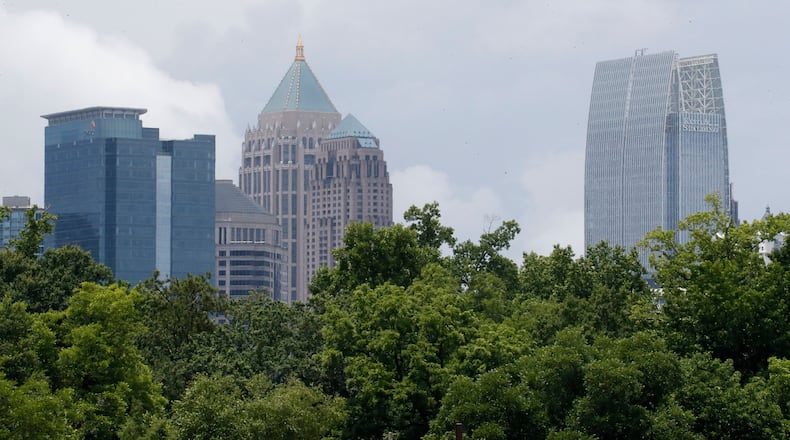Atlanta tree advocates want to see a breakthrough in the years-long struggle to enhance protections for the city’s canopy as expansive development continues.
And they are tired of waiting.
Atlanta’s lush greenery reduces summer heat, enhances property values, and is part of the city’s identity. But studies dating back to 2008 show a decline in Atlanta’s tree population, and environmentalists attribute the deforestation to insufficient protections.
The city’s most recent attempts to revise the tree ordinance date to 2014. Atlanta revisited the issue in 2019 and draft revisions finally landed in the city council’s lap in March 2020 — just as the coronavirus pandemic began.
Although the council introduced a new revised draft ordinance in January, some advocates remain skeptical that the city will successfully update the law this time around.
“The other two times they’ve tried to rewrite it pretty much stalled out at the city council level,” said deLille Anthony, a Buckhead resident and co-founder of The Tree Next Door group. “It does feel like the same thing is happening, although we can’t tell.”
Two tree ordinances currently sit in the council’s business agenda this year, but advocates say only one of them will likely advance to a full council vote. City Councilman J.P. Matzigkeit introduced the 62-page ordinance that was considered in committee as recently as May 25.
Anthony called that ordinance “convoluted.” Some advocates preferred a “citizens blended draft” version of the ordinance that was introduced by Councilman Michael Julian Bond, but a council committee tabled it in May.
“Right now, the Tree Protection Ordinance is still within the Community Development Human Services Committee as we finish the public engagement phase,” according to a statement from the mayor’s office.
Councilman Matt Westmoreland, who chairs the committee debating the ordinance, said the council is making progress with the draft.
“My goal is to finish this conversation this summer,” Westmoreland said. “We have to balance the protection of trees and the preservation of trees with the growth that needs to happen. I continue to be optimistic that we’ll get there.”
Greg Levine, co-executive director of Trees Atlanta, said the “best version” of the city’s work on this topic has occurred over the last four or five months. Even so, he said residents still don’t know when the draft will be finalized, or if it’ll properly fund tree replacement, replanting and recompense matters.
“The biggest challenge is that we would like this to happen soon as possible,” Levine said. “What is this version going to look like and when is it coming out?”
Homeowners must currently obtain permits to remove hardwood trees with a diameter of six inches or more. When trees are removed for construction, a city arborist must review building permit applications, and the developer must replace the trees at the site or on public lands.
The current ordinance also has a process requiring property owners to publicly post notice when they plan to cut down a tree, and it allows residents to file an appeal. The fine for illegally cutting down a tree is $500 for the first offense, and $1,000 for every subsequent violation.
Anthony said those fines aren’t high enough to dissuade developers from illegally removing trees from a site, and she called the ordinance proposed in January “a good solution for the developers to expedite the permitting process,” rather than something benefiting the trees.
Levine and Anthony both said the next ordinance needs a measurable goal for the number of tree canopies that will be preserved, as well as stronger enforcement and a stronger citizen appeals process.
“I dread to see what our city is going to look like 20 to 30 years from now,” Anthony said, referring to the current and proposed ordinances. “I don’t think this current tree ordinance that they’re trying to push through city council right now is going to save our tree canopies.
“If anything, I think it’s going to accelerate its destruction.”
About the Author
Keep Reading
The Latest
Featured



